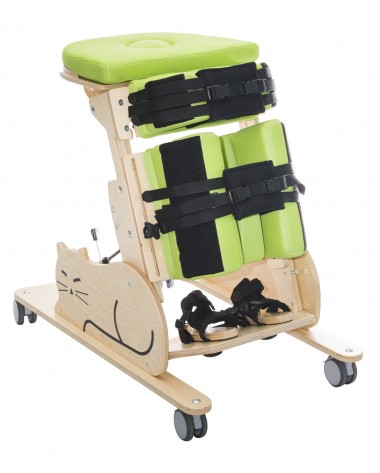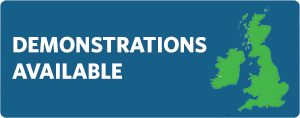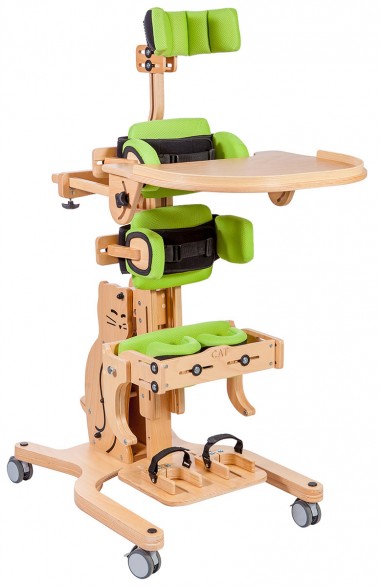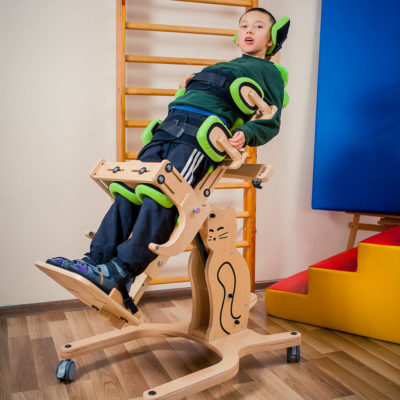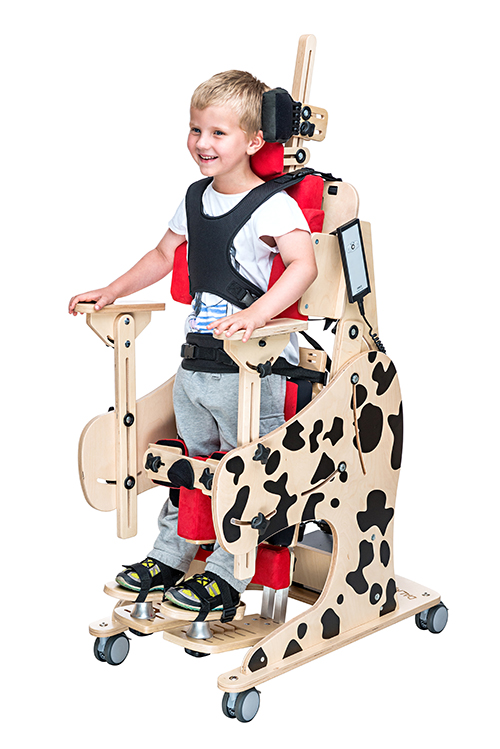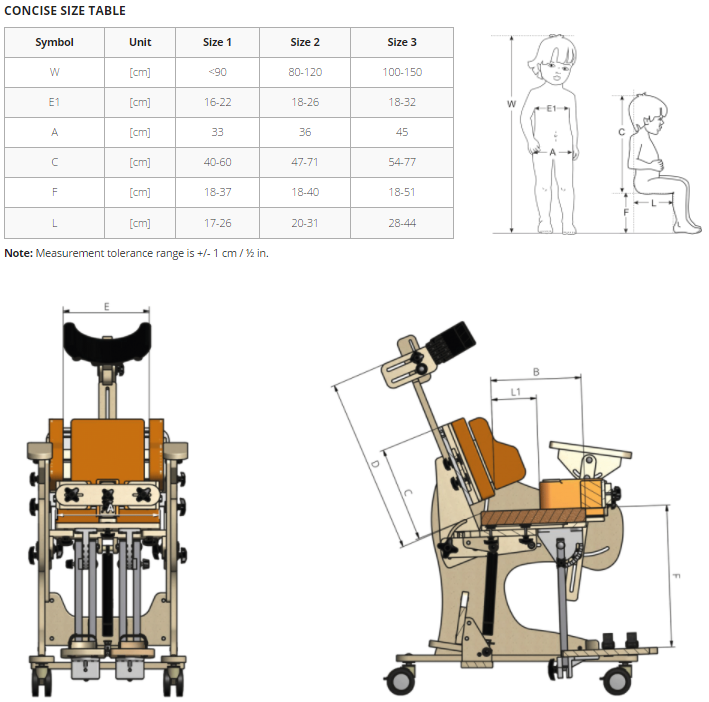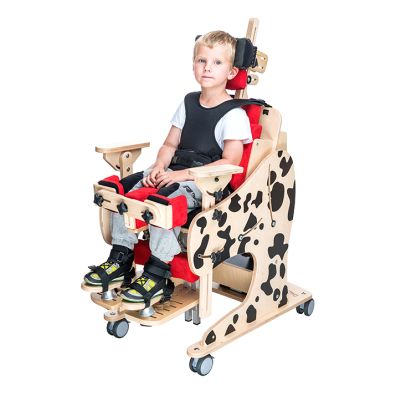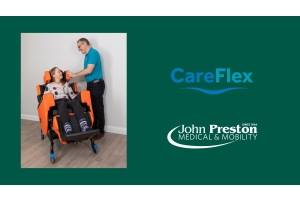Paediatric Standing Frames - Demonstrations available throughout UK and Ireland
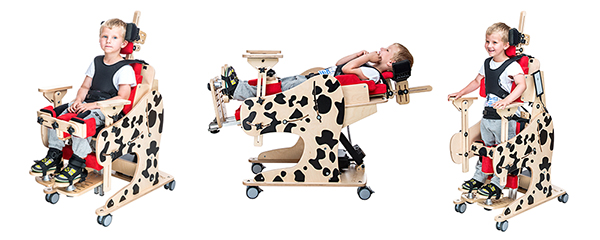
We now offer demonstrations of our range of Paediatric Standing Frames throughout the UK and Ireland
Our range of high quality children's Standing Frames are now available for trial and demonstration via health professionals and parents of children with special needs.
Our Product Specialists are trained to the highest industry standards and help make the entire process of trial and demo easy and comfortable for both adults and young people.
We can demonstrate these Paediatric Standing Frames;
- In a special needs school
- Healthcare environment
- Home
- Other suitable location
Our Product Specialists will help advise on the pros and cons of each standing frame and assist in every way needed in regards to appropriate sizing and suitability.
These standing frames are just one part of our wide range of Paediatric Equipment - check out our brochure that you can download below.
Our Paediatric Standing Frames
CAT 1 Standing Frame
The CAT I standing frame was designed to help children adopt the correct upright position.
It is an excellent product for the development of your child, the CAT 1 comes with an adjustable tilt angle (25° to 85°) and an extensive system of belts and supports, ensuring your child feels safe and secure.
Available in one size and comes in a range of colours and upholstery.*
STANDARD colour/upholstery is Grass in Breathable material.
Key Features
- Easily adjusted to suit your childs needs
- Gas spring to ensure proper tilt angle adjustment and ensures quiet operation
- Equipped with breathable, hypoallergenic 3D fabric.
- Frame with castors and brakes
- Abduction block
- Chest and pelvic pads with safety belts/supports
Optional accessories available including:
- Head supporting belt
- 3D foot adjustment
- Tray for manual therapy
- Tray with bowl
- Feet sandals
- Tango wheel (75mm or 125mm)
Recommended for the following
- Cerebral palsy – various types and forms.
- Brain and spinal cord injuries
- Multiple Sclerosis
- Meningocele.
- Muscles diseases with weakness and paralysis
- Genetic disorders.
- Degeneration and neurological diseases.
- Head and spinal cord injuries and spine trauma with paralysis
CAT II invento - Paediatric Standing Frame
The all new upright standing frame CAT II Invento makes it possible to stand in either prone or supine position which is very beneficial for the development of the child.
With the adjustable tilt angle to 90° you can change the position from lying down to standing.
The standing frame is equipped with a safety lock preventing accidental position change.
It is very easy to use - upright standing position can be done by the release of a button.
It includes footrests with 3D adjustment to allow for smooth foot setting in all directions. It is made from environmental friendly materials and has a stable structure to ensure adequate safety of your child.
The Cat 2 stander is available in two sizes, and can be used in vertical, prone or supine. The vast majority of accessories come as standard however there are a few optional accessories.
Key features
- Stable structure - Cat 2 stander ensures adequate stability safety for the user and carer.
- It is very user friendly thanks to the innovative four-bar linkage. For upright standing you need only to release the lock of the gas spring.
- Equipped with 3D foot buckles for smooth foot setting in all directions.
- Easily adjusted to suit your childs needs
- Gas spring to ensure proper tilt angle adjustment and ensures quiet operation
- Equipped with breathable, hypoallergenic 3D fabric.
- Frame with castors and brakes
- Excellent range of supports - headrest, knee supports, pelvic belt and cushion, pelvic pelottes, chest belt / pellotes
- 2 years manufacturers warranty
Recommended for the following:
- Cerebral palsy – various types and forms.
- Brain and spinal cord injuries
- Multiple Sclerosis
- Meningocele.
- Muscles diseases with weakness and paralysis
- Genetic disorders.
- Degeneration and neurological diseases.
- Conditions connected with muscles weakness, paralysis and musculoskeletal disorders.
- Head and spinal cord injuries and spine trauma with paralysis and paresis.
Equipment Included:
- Frame with castors and breaks
- Footplate with foot stabilization
- Gas spring
- Knee support
- Lightweight
- Hypoallergenic
- Easy to clean
- Natural protection against mold
- Lightweight
- Easy to clean
- Waterproof
- Easy maintenance
- Very durable
- Safe and easy to disinfect
- Steam permeable
- Water resistant
DALMATIAN Invento Stander/Chair
The DALMATIAN Invento chair/stander is widely used throughout Europe in the process of rehabilitation and is suitable for both children and young adults.
This product is designed to enable the user to adopt the correct sitting and standing position. It also consists of a lying down function.
As it is equipped with a gas spring - Therapists and carers can put the child in upright position without removing them from the chair.
It includes a safety vest and pelvic belt with innovative “hold & pull" system which allows for quick and precise stabilisation of the child.
It is available 3 sizes and a range of colours.
Key Features
- Frame with castors equipped with brakes
- Pneumatic spring
- Deep adjustable seat
- Removable and adjustable abduction block
- Knee support
- Backrest
- Hold&pull vest and pelvic belt
- Chest suport (size 1, 2)
- Independently adjustable pelvic and chest support (size 3)
- Head-rest
- Forearm supports
- Tray
- Independently adjustable footrest
- Innovative quadric mechanism
Recommended for the following
- Cerebral palsy – various types and forms.
- Brain and spinal cord injuries
- Multiple Sclerosis
- Meningocele.
- Muscles diseases with weakness and paralysis
- Genetic disorders.
- Degeneration and neurological diseases.
- Conditions connected with muscles weakness, paralysis and musculoskeletal disorders.
- Head and spinal cord injuries and spine trauma with paralysis and paresis.

